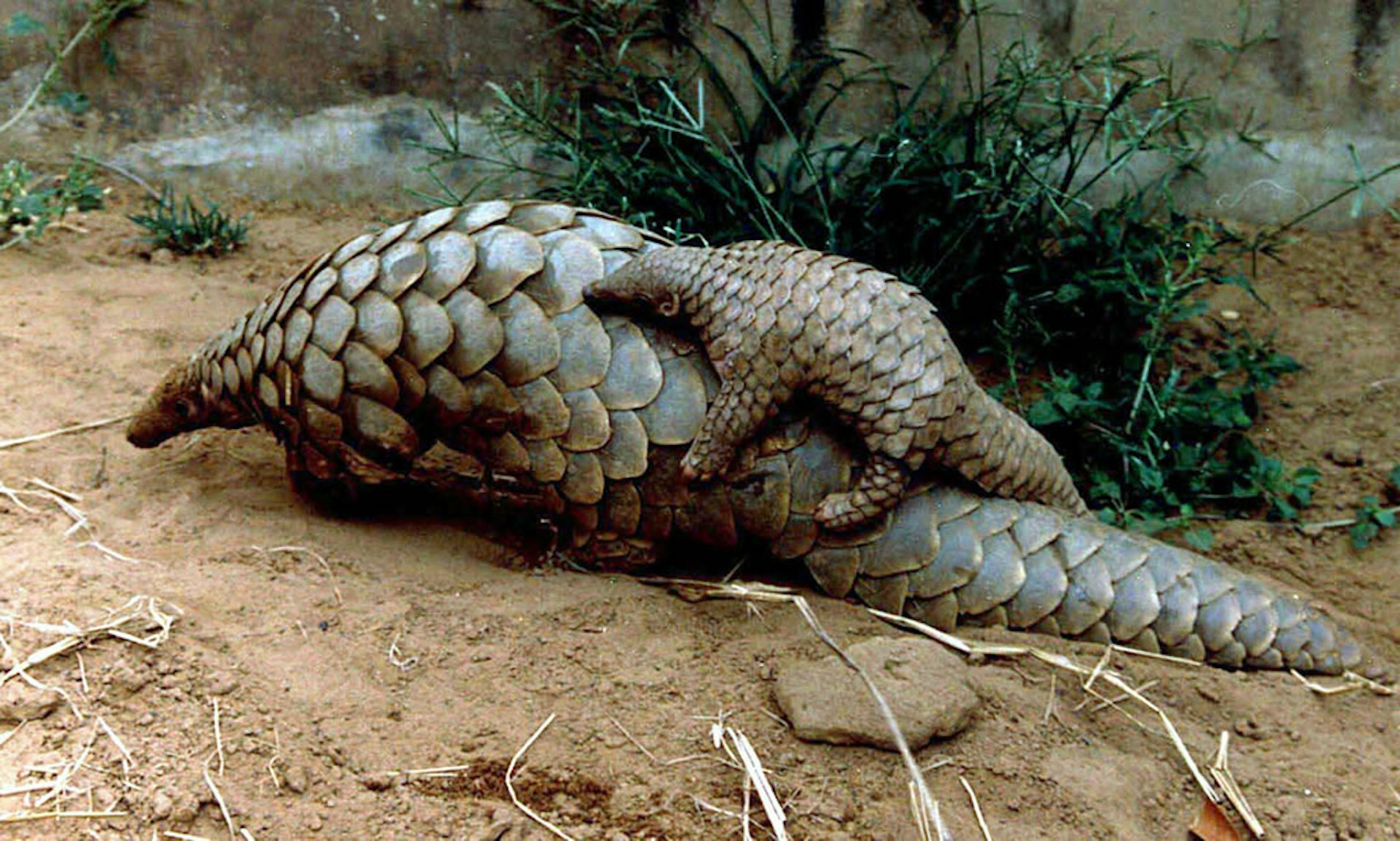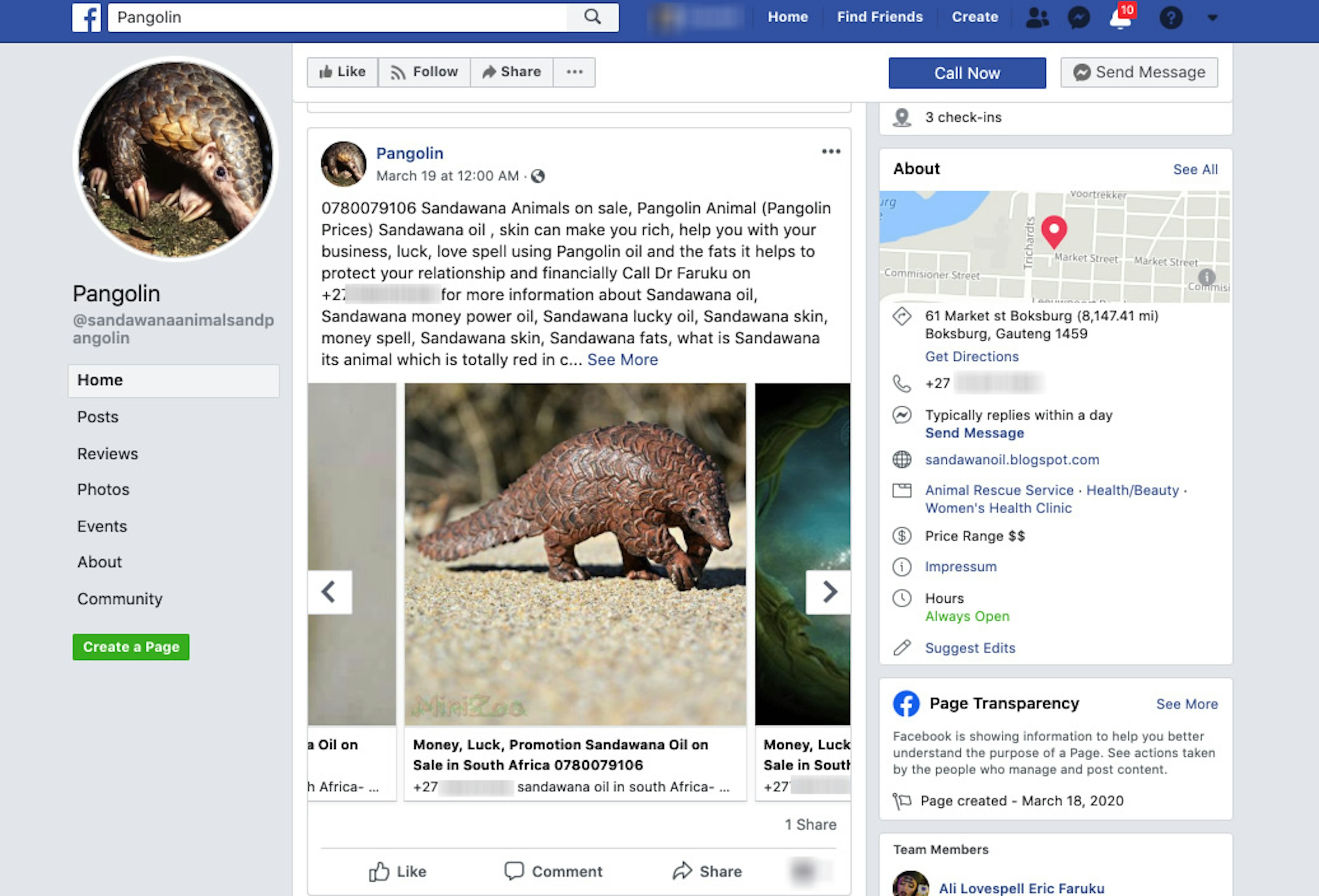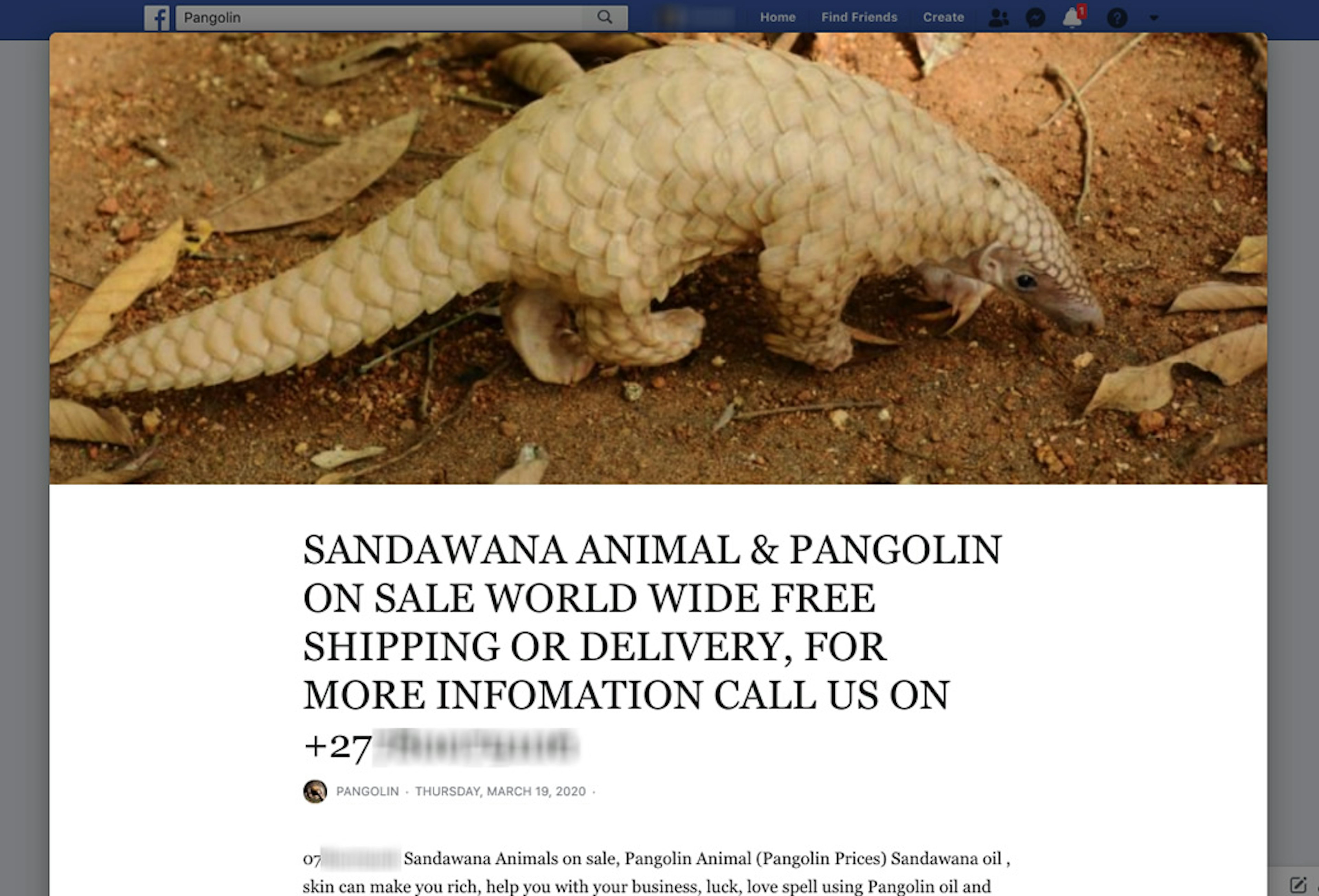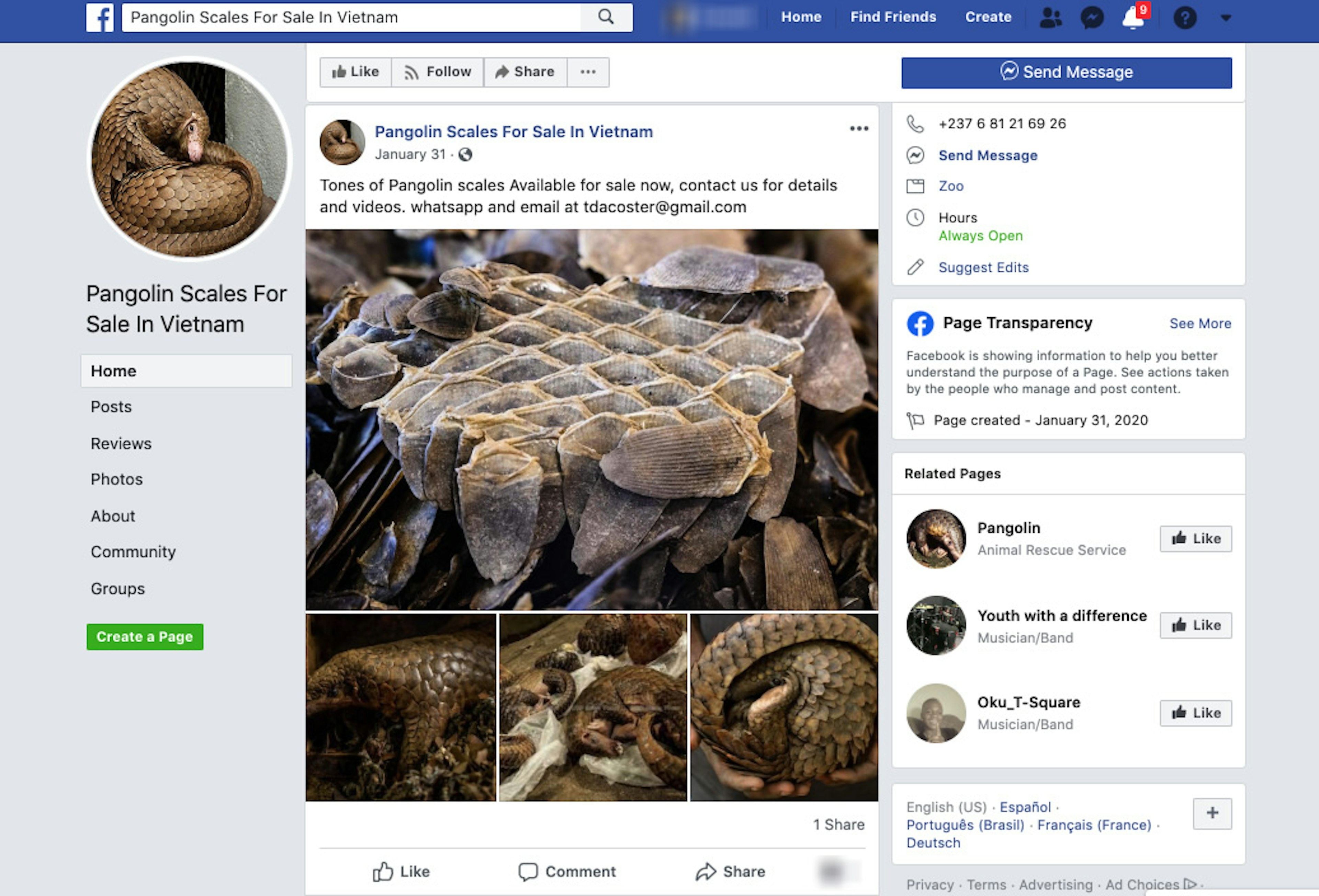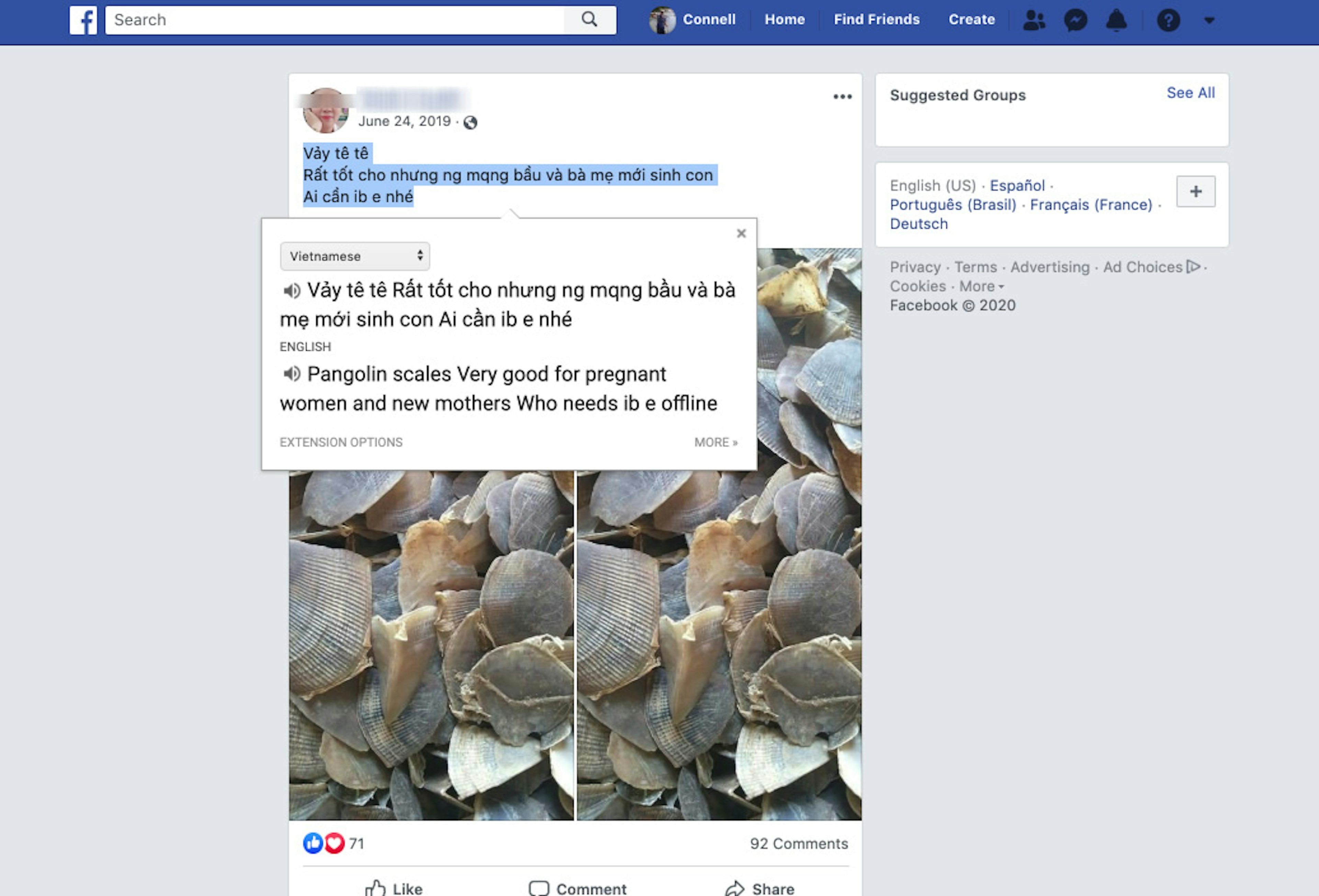Facebook is allowing wildlife traffickers to openly sell pangolins on its platform, despite the animal’s threatened status and possible connection to the coronavirus outbreak, according to a Tech Transparency Project investigation.
Facebook’s Community Standards prohibit the sale of endangered species or their parts, and the company’s Commerce Policies go even further, banning listings that promote the sale of any animals or animal products.
But TTP found a number of Facebook pages that offer to sell pangolins or their scales, which are used in traditional Chinese medicine. The eight pangolin species range from vulnerable to critically endangered and are protected under national and international laws.
The ant-eating pangolin, which is found in parts of Asia and Africa, is considered the most trafficked mammal in the world. But the sale of pangolins on Facebook has become even more troublesome given their potential role in the coronavirus pandemic. The animal has emerged as a possible intermediate host in the transmission of Covid-19 to humans.
There’s still debate about what type of animal may have acted as a bridge for the virus to jump between bats, widely thought to be the original host, and people, and other theories have circulated about the source of Covid-19. Regardless, some scientists say pangolins are a concern because they carry other types of coronaviruses that could pose a future threat to humans.
Facebook’s failure to eradicate this disturbing trade, even amid widespread media reporting about the pangolin as a potential disease vector, is another sign of the company’s inability—or unwillingness—to police its platform and block illicit activity.
One public Facebook Page, which was created in January, was explicitly called “Pangolin Scales for Sale in Vietnam.” It directed interested buyers to make contact with the seller via email or Facebook-owned WhatsApp, an encrypted messaging service commonly used by wildlife traffickers.
Other Facebook Pages identified by TTP paired pangolins with other endangered animal products. A public page titled “Rhino Horns And Pangolin scales For sale In China,” which was created in March, encouraged users to “embrace our businesses like never before” as the coronavirus recedes. The page was listed as a “Petting Zoo.” Another Facebook Page was simply called “Pangolin” and offered oils made from the animal. The page was listed as an “Animal Rescue Service” along with the categories of “Health/Beauty” and “Women’s Health Clinic.” It promoted a pangolin sales event on Facebook in late March.
Some Facebook posts selling pangolins, which predated the Covid-19 outbreak, continued to do business on the site well into this year. Simply by using the Vietnamese word for “pangolin” rendered through Google Translate, TTP was able to identify posts in public profiles selling pangolin scales. One Vietnamese post from June 2019 suggested the scales are good for pregnant women and newborns. The post had nearly 100 comments, some appearing as recently as late April.
Facebook took down three of the pages after a reporter from BuzzFeed, who had been given access to the findings by TTP, asked Facebook for comment.
Pangolin scales are coveted for traditional Chinese medicine, and its meat is consumed in China and Vietnam as well as in parts of Africa. Pangolin skin is also made into leather. Activists and researchers say the animals are frequently subjected to cruel treatment, including being force fed to fatten them up before going to market.
The illegal trafficking of pangolins is contributing to the coronavirus risks to humans, according to a recently released report from the United Nations Office on Drugs and Crime.
"These shy mammals do not pose any immediate threat to human health if left in their ecosystem," the report said. "But when pangolins are poached from their natural habitat, butchered and sold illegally, a potential health hazard is brought close to home."
As the coronavirus outbreak took hold in China, the Chinese government banned the sale and consumption of wild animals and temporarily closed down “wet markets,” which sometimes sell live animals, due to concerns that Covid-19 originated in one such market in Wuhan. Some of those markets are now being allowed to reopen.
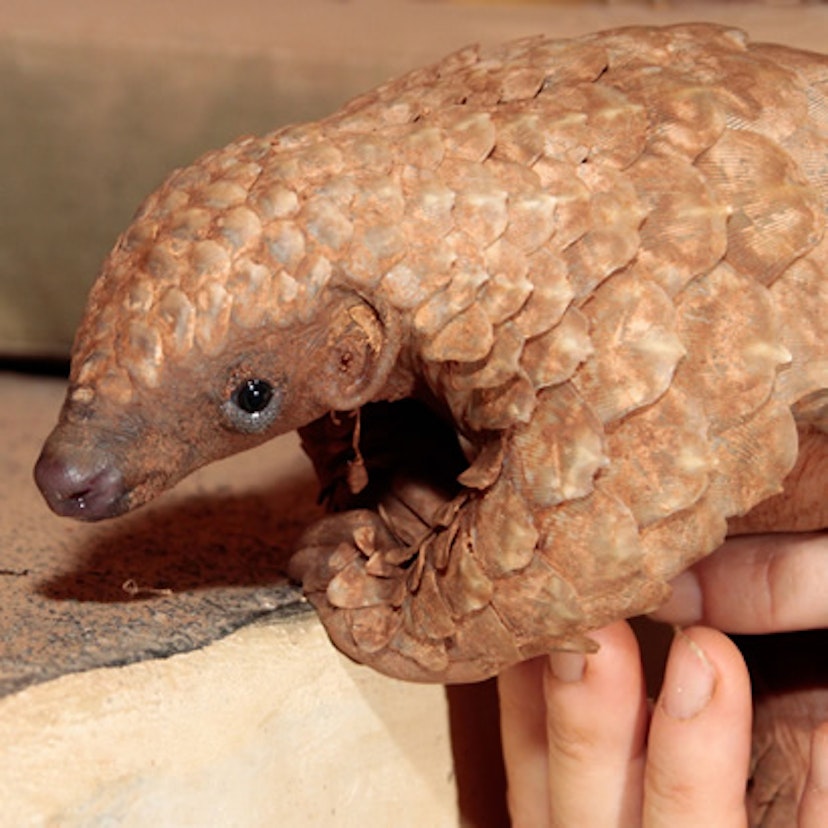
Pangolin species range from vulnerable to critically endangered.
Facebook’s Community Standards, which were recently updated, ban content that “promotes, encourages, or coordinates the poaching of endangered species and their parts” or that involves buying or selling live animals of any kind. The company’s Commerce Policies, meanwhile, state that listings “may not promote the buying or selling of animals.”
In March 2018, Facebook joined the Coalition to End Wildlife Trafficking Online, which aims to reduce such activity across tech platforms by 80 percent by 2020.
Since then, however, reports have documented Facebook’s failures in this area. About a month after the company signed onto the wildlife coalition, advocates accused Facebook of serving advertisements into pages selling body parts of threatened animals, including elephant ivory, rhino horns, and tiger teeth. An August 2019 report from the nonprofit group Traffic, a Facebook partner in the coalition, documented an extensive trade in hornbill species and their parts in Thai-language Facebook groups.
The following month, a report from German news agency Deutsche Welle found widespread sales of endangered reptiles on Facebook.
Tech companies that are part of the coalition agreed to a series of measures including rolling out user awareness tools and enhancing staff ability to detect illegal wildlife products. But TTP encountered no such awareness tools when it conducted Facebook searches using the phrases “pangolins” or “pangolins for sale” in English and Vietnamese.
The persistence of the pangolin trade on Facebook—at a time of increased international attention on the animal as a potential source of the coronavirus—highlights the company’s problems cracking down on wildlife trafficking and many other forms of troubling and illegal content flowing through its platform.
Note: This report has been updated to reflect more pages were taken down by Facebook.
